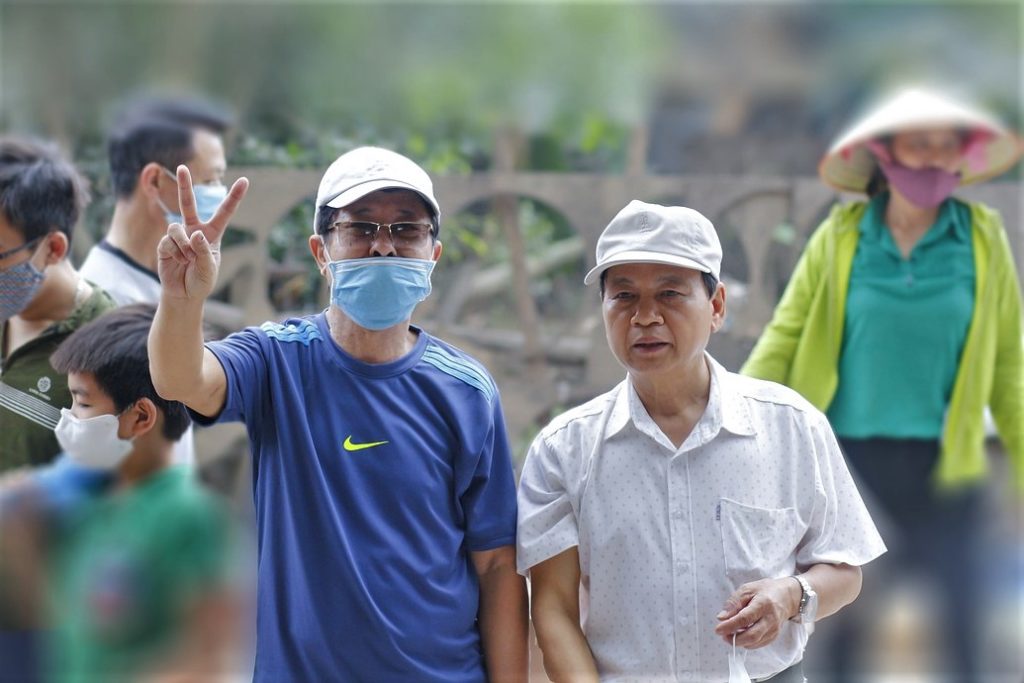Greetings and Personal Pronouns in Vietnamese Posted by Kandle Dart on Jan 14, 2021 in Culture, Grammar, Vocabulary
It doesn’t matter what language you would like to acquire, one of the first subjects for a beginner to learn is how to greet and address people in their native language.
To greet people in English, you can simply use one word like “hi” or “hello”, and add a name to address a specific person, or more formally, add a prefix before the name. In Vietnamese, the word chào (hello) can’t be used alone to greet people. It has to go with either a name, or a personal pronoun. And to greet someone formally, you have to add the word kính (respectfully) in front of chào, then followed by the personal pronoun.
When it comes to personal pronouns, it becomes much, much more complicated in Vietnamese. This is where most foreigners have trouble.
In modern English, the personal pronouns include I, you, he, she, it, we, they, them, us, etc., and generally are used arbitrarily. In Vietnamese, it’s very important to know how to address a person or a group in a respectful fashion. The personal pronoun changes depending on the age, gender, social rank, family ties on the maternal side or paternal side, job position, level of respect, etc. For example, the familiar terms you often hear when one addresses another that is equivalent to “you” in English are:
- anh (older brother)
- chú (uncle)
- bác (uncle)
- ông (sir, mister, grandpa)
- chị (older sister)
- cô (aunt)
- bác (older aunt)
- bà (ma’am, madam, grandma).
You can follow some general rules of thumb when greeting someone:
- When addressing someone obviously younger than you, you can greet that person “chào em” (hello, younger bro/sis).
- When addressing someone older than you, or to address more formally, greet “chào cô” (hello, younger aunt/lady), “chào chú” (hello, young uncle), or “chào bác” (hello older aunt/older uncle). For someone your grandparents’ age or with a higher position who you would like to address respectfully, say “chào ông” (hello, sir/ grandfather), or “chào ba`” (hello ma’am, madam, grandmother). Note that these words are general and not necessary to address family members.
- When addressing someone whose age you don’t know, to be safe, greet that person “chào anh” (hello, older brother) or “chào chị” (hello, older sister).
Non-native Vietnamese speakers or Vietnamese who were born and raised overseas would scratch their heads learning how to address their relatives and family members correctly. A set of personal pronouns is reserved specifically for relatives on the maternal side and paternal side. My nieces and nephews who were born in the United States are still confused when their mom tells them to call me dì (maternal aunt), my husband dượng (maternal uncle-in-law), while calling their father’s sister as cô (paternal aunt), and her husband as chú (paternal uncle-in-law). To make it even more complex, each main region in Vietnam also uses slightly different rules for addressing relatives on either maternal or paternal sides.
Are you feeling bewildered now? Well, don’t worry. If you’re not sure how to address the person, just ask what title that person would like to be called. No one would be offended by that question. How to pronounce the word chào (hello) in Vietnamese? It’s a piece of cake. Just say “ciao” in Italian, and you won’t be wrong. Your head is probably spinning by now with all these pronouns. I also need to get more coffee. Remember the word chào does not only mean “hello”. It also means “goodbye”. So for now, I say “chào tạm biệt” (au revoir, goodbye, so long) everyone. See you at the next blog.

Build vocabulary, practice pronunciation, and more with Transparent Language Online. Available anytime, anywhere, on any device.




